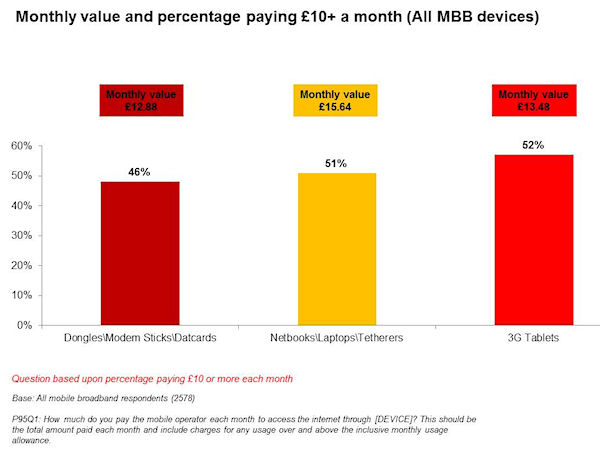Evolutionary blind alley
Market researcher YouGov has released its latest look at mobile broadband use in the UK. The key finding of the report is that people who use mobile computing devices with integrated 3G - mainly tablets - use mobile broadband significantly more than those using 3G dongles.
80 percent of 3G tablet owners use their device on a weekly basis, says YouGov, although it's not clear whether mobile broadband specifically is referred to. This compares to 60 percent of dongle owners. 3G tablet users also indulge in a wider variety of online activities on their devices - being much more likely to stream video, for example.
It stands to reason that integrated 3G, which in theory provides a seamless connectivity experience, is likely to be exploited more than a dongle. The table below shows that users with integrated 3G tend to spend more on their tariffs, presumably in anticipation of this greater use.

As tablets become more ubiquitous, and people come to expect this kind of integrated mobile broadband experience, it seems likely that dongles will be less appealing and thus will sell less.
Juniper research reckons tablet shipments will reach 55 million by the end of this year, and 253 million units by 2016. Gartner, meanwhile, predicts total PC sales of 364 million this year and 404 million in 2012. It also reckons half of those will have integrated mobile broadband.
If we guess that PC numbers will hit, say, 600 million by 2016, then the tablet market will be almost half the size of the PC one. Windows 8 tablets will be well-established by then, and it's starting to look like people are equating ultra-mobile computing with tablets. This looks like bad news for the dongle market.













